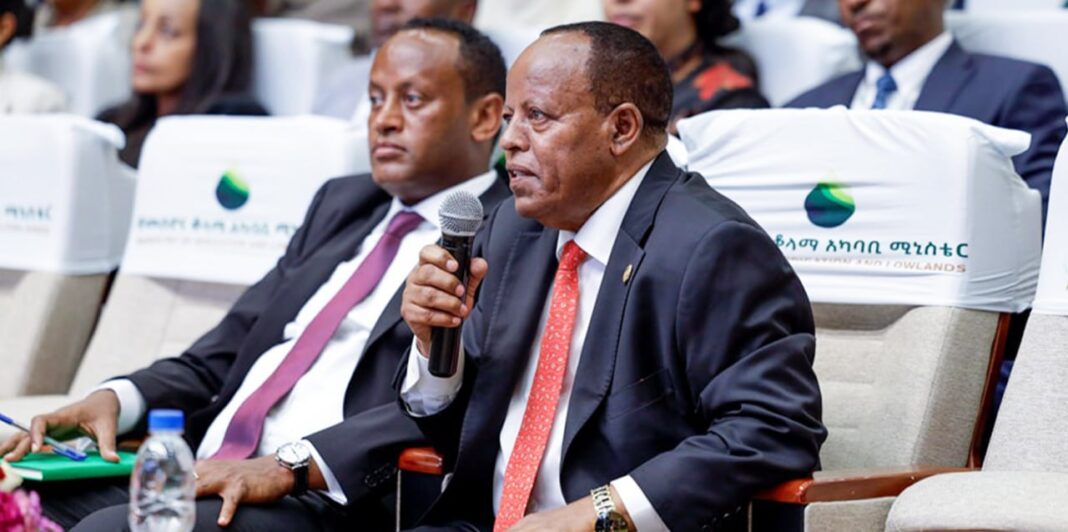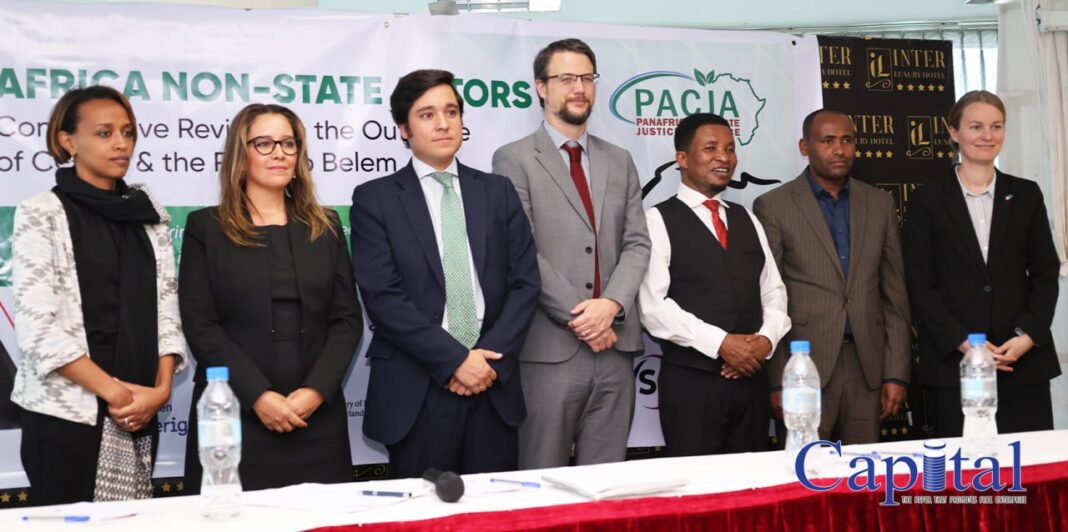Carbon finance is emerging as a key mechanism to mitigate climate change and drive sustainable agricultural development across Africa, according to Abraham Belay, Ethiopia’s Minister of Irrigation and Lowlands. Speaking at the International Conference on Irrigation and Climate Resilient Production 2025, held at the Adwa Memorial Museum, the minister emphasized the potential of transitioning from diesel-powered irrigation systems to those powered by renewable energy, and African leaders exchanged experiences.
This transition, he noted, could unlock significant investments in agricultural transformation and enhance resilience to the impacts of climate change. Switching from diesel to renewable energy-powered irrigation not only reduces emissions but also modernizes African agriculture, increases food security, and offers a promising path to sustainable agricultural development[8].
Abraham called on policymakers, investors, researchers, and farmers to commit to alternative strategies for transforming African agriculture through sustainable irrigation. He underscored the importance of environmentally sound policies that prioritize land and water rights, farmer-led irrigation, and the adoption of climate-smart technologies.
While the minister acknowledged that funding remains a key challenge, he suggested innovative models such as public-private partnerships, blended finance mechanisms, and climate-specific funds as solutions to mobilize resources for promoting irrigation expansion and improved resilience. These mechanisms could create opportunities for African countries to supplement their investment programs in agricultural and forestry landscapes, with carbon finance.

Carbon finance could provide the funds to ensure the production of agriculture can be done in a low carbon and resilient way. African countries are interested in the opportunity to preserve their natural resources, while benefiting of financial flows from global carbon trading schemes, including Ethiopia and Zambia.
President Taye Atske-selassie also spoke at a national conference on irrigation, emphasizing the strategic importance of irrigation for food self-sufficiency and cited successful examples from other countries. He highlighted how irrigation projects at the national level are enhancing pastoralists’ livelihoods, revitalizing agricultural production, promoting agricultural industry development, and creating employment opportunities for women and youth across Ethiopia. He also emphasized the importance of joint leadership, cooperation, consultation, and strong knowledge exchange within Africa, emphasizing the critical role of high-quality data in irrigation development.
For African countries, trading of carbon credits represents an opportunity for economic development, job creations, access to climate finance and a driver for change that can contribute to the global fight against climate change, the realization of the Aspirations of Agenda 2063, and the sustainable development goals.
As African countries seek to enhance their climate resilience and achieve food security, carbon finance presents a viable pathway for attracting green investments and promoting sustainable agricultural practices. However, tensions between market-driven approaches and the need for sustainable, equitable land use remain. Concerns around transparency, integrity, and benefit-sharing raise questions about how well Voluntary Carbon Markets align with Africa’s sustainable development priorities.
To unlock the potential of voluntary carbon markets to finance agrifood system transition, data integrity, harmonized methodologies, and precise and cost-effective Monitoring, Reporting and Verification (MRV) are crucial. Governments have a role in supporting carbon credit markets through regulation, farmer incentives, and ensuring equitable benefit-sharing. Leveraging Voluntary Carbon Market finance alongside other climate finance mechanisms can enhance long-term impacts, while technological innovations and scalable business models can drive cost reductions and greater participation.







